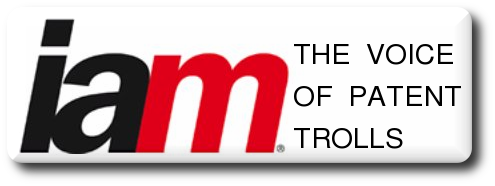

THIS morning we found IAM speaking about the French patent troll known as Technicolor. We wrote about it several times before, as did IAM (a proponent of such trolls).
The discussions are at a sufficiently advanced stage that Technicolor has suspended all ongoing licence negotiations. That is why the French company had to tell investors now – its IP business is going to generate significantly less cash flow by year-end than expected. If all goes as planned, the new owner of Technicolor’s portfolio will be resuming talks with those prospective licencees after the deal closes sometime in 2018.
Samsung will not be among those prospective licencees, as Rose also announced a settlement of French and German litigation against the Korean smartphone maker. Technicolor will be keeping the royalty flow from that deal, Rose said, but it will provide an important data point in putting a price tag on the patent business as a whole.
A USPTO assignment recorded two weeks ago reveals the fund’s latest apparent patent sale. ID transferred a portfolio of patents related to audio coding and processing to a US entity called Unified Sound Systems Inc. The package includes 30 assets in all, counting eight US and three Chinese grants. Unified Sound is a recent creation with no patent history or associated names – its listed address is a residence in San Leandro, California. ID acquired the patents in 2015 from the tech transfer arm of Seoul’s Yonsei University.
The patent sale occurred around the same time that ID sold a patent portfolio covering camera lenses to Compact Lens Technologies LLC, which appears to be a subsidiary of Texas-based IP business IP Valuation Partners. It is not known whether the two October sales were cash only or privateering plays; but the latter is definitely part of the ID playbook, as exemplified by its monetisation agreement with DSS. That was the last deal done on former CEO Kwang-jun Kim’s watch; if these more recent transactions are structured similarly, it is a solid indication that ID doesn’t plan on litigating on its own behalf anytime soon.
Then again, ID’s current direction does not seem all that different from that of Intellectual Ventures. IV has stopped buying patents, and gone into selling mode. Many of the portfolios it has divested have been snapped up by NPEs and then litigated. As executives from IV have explained, licensing conditions are tough but there is demand for whole portfolios purchases. Moreover, operating companies may become more receptive to buying assets if they can see many of them are being sold off to NPEs who may later target them.